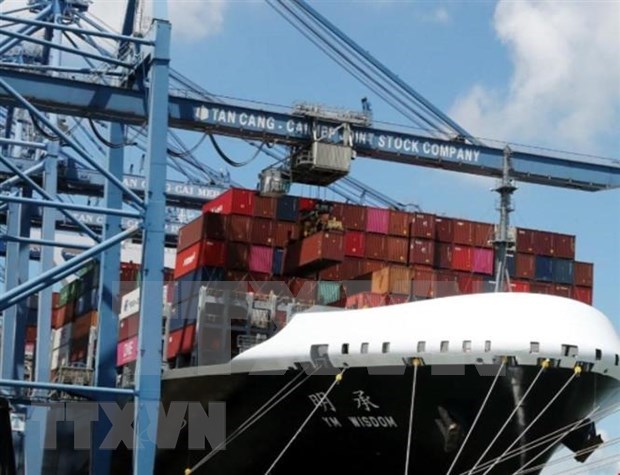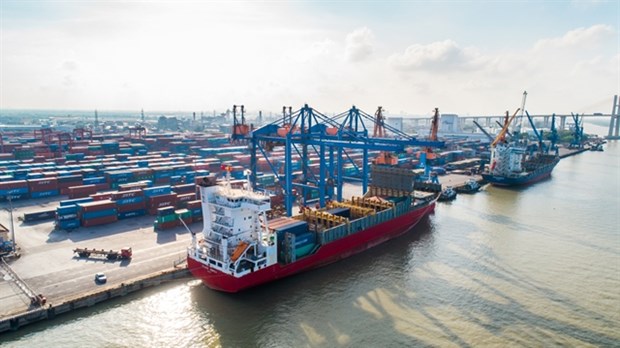 |
|
|
The country enjoyed robust trade last year despite COVID-19, with high export value on the back of orders from the US.
Total foreign trade was estimated at 543.9 billion USD, a year-on-year increase of 5.1 percent, with the country posting a trade surplus of 19.1 billion USD, its highest since 2016.
According to the Viet Dragon Securities Corporation, the volume of goods handled at local ports picked up after the second quarter last year, with the pandemic encouraging many multinational corporations (MNCs) to shift production to Vietnam. It said this trend will continue as Vietnam integrates more deeply via free trade agreements (FTAs).
Market researcher Fitch Solutions has forecast that Vietnam’s trade revenue will grow by an average of 11 percent each year during the 2021-2024 period, sparked by better trade relations through FTAs such as the EU-Vietnam FTA (EVFTA) and the Regional Comprehensive Economic Partnership (RCEP).
The country is developing its logistics infrastructure, which has been described as an important factor amid the post-pandemic reshoring of global supply chains.
Along with various road construction projects, the development of deep-water ports has been paid due regard, such as the Gemalink Port at the Cai Mep - Thi Vai International Port (to be operational in 2021), and the third and fourth wharves at Lach Huyen Port (expected to begin operations in 2025).
The deep-water ports can berth large container vessels and help cut logistics costs as there is no need to send products to a trans-shipment hub. They also help improve the competitive edge of the local logistics sector.
Vietnam will continue to be an attractive destination for MNCs. Occupancy rates at industrial parks has increased remarkably since foreign enterprises began shifting their business to Vietnam.
Analysts anticipate several challenges for the port sector in the short term, however.
The Vietnam Marine Administration said that the total weight of goods handled at Vietnamese ports fell in October and November after rising 14 percent in the first nine months of last year.
SSI Securities Corporation attributed the decline to a shortage of empty containers, which is worsening in Asia as importers in the US and Europe struggle to return empty containers to Asian manufacturing hubs because of social distancing at home.
This issue cannot be addressed overnight, since high demand for empty containers is likely to last until the Lunar New Year in mid-February, SSI experts said.
Meanwhile, VDSC experts believe the country’s import-export activities will be affected when demand from major markets like the US, the EU, and China falls due to the pandemic.
They forecast that Cai Mep - Thi Vai will see a surge of over 20 percent in maritime transport flows owing to direct sea routes with the US and the EU. The volume of cargo settled at Hai Phong Port, meanwhile, is expected to rise 10 percent thanks to a recovery in trade within Asia and robust signs in the US.
Increases in stevedoring prices are said to have less impact at Hai Phong Port. Fierce competition due to oversupply will force ports to cut service prices to maintain relations with ship owners.
The stock prices of port companies have increased significantly due to the sector’s bright prospects and improving business.
From the end of the second quarter to January 8, the shares of the Vietnam Container Shipping Corporation, coded VSC, rose over 117 percent, while those of the Gemadept Corporation (GMD), Doan Xa Port JSC (DXP), and the Tan Cang Logistics and Stevedoring JSC (TCL) increased over 82 percent, 68 percent, and 27 percent, respectively./.VNA

Seaport companies less affected amid pandemic
Seaport companies still reported positive earnings despite the impacts of the COVID-19 pandemic.

Vietnam opens seaports to receive new FDI 'wave'
Development of coastal industrial zones appears to be the right move to take advantage of incoming FDI.